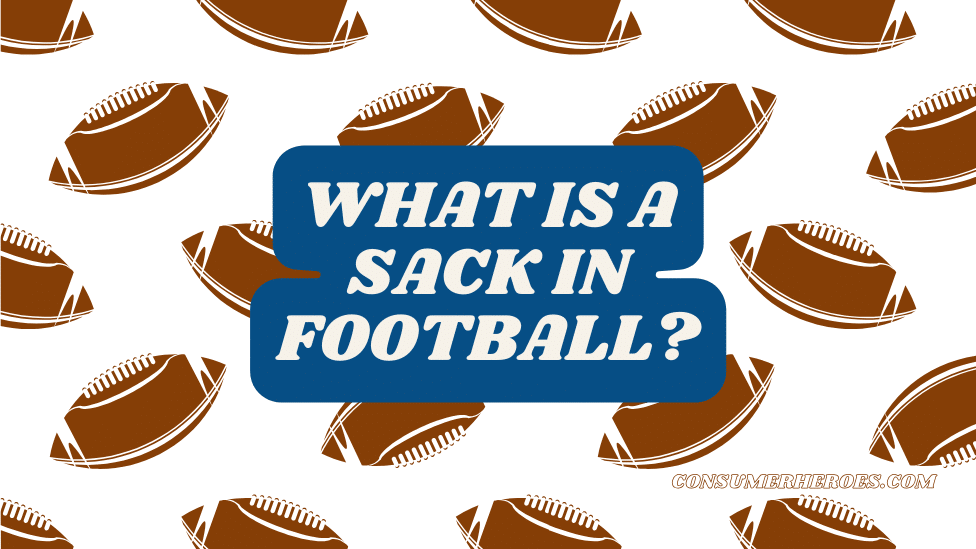A DB in football is a defensive back who plays a vital role in the defense of a team. The DBs are responsible for covering the receivers and preventing the opposing team from making successful passes. They are also responsible for intercepting the passes and tackling the opposing team’s players.
The position of a DB is one of the most important positions in football, and it requires a unique set of skills. DBs must be fast, agile, and have excellent reaction times. They must also be able to read the opposing team’s plays and anticipate their moves. In addition, they must be able to communicate effectively with their teammates to ensure that the defense is working together as a cohesive unit.
Overall, a DB is an essential part of any football team’s defense. Their ability to cover receivers, intercept passes, and tackle opposing players can make a significant impact on the outcome of a game. Without DBs, the opposing team would have an easier time making successful passes and scoring points, making it difficult for the defense to keep up.
Understanding DB in Football
DB stands for defensive back in football. It is a position in American football that is responsible for defending against the pass. DBs are typically the last line of defense and are tasked with preventing the opposing team from scoring touchdowns.
There are two types of defensive backs in football: cornerbacks and safeties. Cornerbacks are responsible for covering wide receivers, while safeties are responsible for covering the deep part of the field and helping out with coverage when needed.
DBs must have a combination of speed, agility, and strength to be effective. They must also have excellent hand-eye coordination and be able to react quickly to changes in the game. DBs are also known for their ability to read the quarterback’s eyes and anticipate where the ball is going to be thrown.
In addition to their coverage responsibilities, DBs are also expected to be effective tacklers. They must be able to bring down ball carriers in the open field and prevent them from gaining additional yards after the catch.
Overall, DBs play a critical role in the success of a football team’s defense. They are responsible for preventing big plays and keeping the opposing team’s offense in check.
Roles and Responsibilities of a DB
Defensive backs (DBs) play a crucial role in American football. They are responsible for defending against the pass, covering receivers, and disrupting the opposing team’s passing game. DBs must be versatile and possess a wide range of skills to be effective on the field. This section will outline the various roles and responsibilities of a DB and the skills required to perform them.
Coverage Skills
One of the primary responsibilities of a DB is to provide coverage to receivers. This involves staying close to the receiver, anticipating their movements, and preventing them from catching the ball. DBs must have excellent footwork, speed, and agility to keep up with the receiver and change direction quickly.
DBs must also be able to read the quarterback’s eyes and anticipate where the ball is going to be thrown. This requires a high level of football IQ and the ability to quickly analyze the game situation.
Tackling
DBs must also be able to tackle effectively. They are often the last line of defense and must be able to stop the runner or receiver from gaining additional yardage. DBs must have good tackling technique and be able to deliver a hard hit without committing a penalty.
Ball Skills
DBs must have excellent ball skills to be effective in their role. This includes the ability to track the ball in the air, make interceptions, and knock down passes. DBs must also be able to strip the ball from the receiver and recover fumbles.
In addition to these skills, DBs must also have good communication skills and be able to work effectively with the rest of the defense. They must be able to communicate coverages and assignments to their teammates and make adjustments on the fly.
Overall, DBs play a critical role in the success of a football team’s defense. They must possess a wide range of skills and be able to execute them at a high level to be effective on the field.
Types of DB Positions
Cornerback
Cornerbacks, also known as CBs, are defensive backs who primarily cover the wide receivers of the opposing team. They are usually the fastest players on the field and are responsible for preventing the opposing team’s wide receivers from catching the ball. Cornerbacks must have excellent speed, agility, and reaction time to keep up with the fast-paced nature of the game.
There are two types of cornerbacks: boundary cornerbacks and field cornerbacks. Boundary cornerbacks usually line up on the short side of the field, while field cornerbacks usually line up on the wide side. Boundary cornerbacks are typically more physical and are better at defending against the run, while field cornerbacks are more agile and are better at defending against the pass.
Safety
Safeties, also known as Ss, are defensive backs who primarily play in the deep part of the field and are responsible for preventing long passes and big plays. They are usually the last line of defense and must have excellent vision, anticipation, and tackling skills.
There are two types of safeties: free safeties and strong safeties. Free safeties are usually responsible for covering the deep part of the field and helping out cornerbacks in coverage. They must have excellent range and be able to read the opposing team’s quarterback to anticipate where the ball will be thrown. Strong safeties, on the other hand, are usually responsible for defending against the run and covering tight ends. They must be physical and have excellent tackling skills.
In summary, cornerbacks and safeties are two types of defensive backs who play important roles in preventing the opposing team from scoring. Cornerbacks are responsible for covering wide receivers, while safeties are responsible for defending against long passes and big plays.
Key Skills for a DB
As a defensive back (DB) in football, there are several key skills that are essential to possess in order to be successful in this position. These skills include speed, agility, strength, and intelligence.
Speed
Speed is a critical component for a DB. A DB must be able to keep up with fast and agile wide receivers, and also be able to close gaps quickly to make tackles. A DB with exceptional speed can also be an asset in blitz packages, allowing them to quickly get to the quarterback.
Agility
Agility is another important skill for a DB. A DB must be able to change direction quickly, and also be able to stop and start on a dime. This allows them to stay with receivers who are running complex routes, and also make tackles in open space.
Strength
While strength may not be the first thing that comes to mind when thinking about a DB, it is still an important skill to possess. A DB with good upper body strength can jam receivers at the line of scrimmage, disrupting their routes and throwing off the timing of the offense. Additionally, strength is important when making tackles, as a DB must be able to bring down larger running backs and tight ends.
Intelligence
Finally, intelligence is a crucial skill for a DB. A DB must be able to read the offense and anticipate their next move. This requires a deep understanding of the game, as well as the ability to quickly analyze and react to different situations. A DB with high football IQ can also provide leadership on the field, helping to guide the rest of the defense and make adjustments as needed.
In summary, a successful DB must possess a combination of speed, agility, strength, and intelligence. These skills allow them to keep up with fast and agile receivers, disrupt the timing of the offense, make tackles, and read and react to different situations on the field.
Training and Preparation for DBs
Physical Training
DBs need to be fast, agile, and strong to keep up with the receivers they are covering. A combination of weight training, plyometrics, and speed drills can help DBs improve their physical abilities.
Weight training should focus on developing explosive power in the legs and upper body. Squats, deadlifts, and bench presses are good exercises to include in a DB’s weight training routine. Plyometrics, such as box jumps and hurdle hops, can help DBs improve their explosive power and agility.
Speed drills should focus on improving acceleration, deceleration, and change of direction. Cone drills and ladder drills are good exercises to include in a DB’s speed training routine.
Mental Training
DBs need to be able to read the offense and anticipate the receiver’s movements to be successful. Mental training can help DBs improve their ability to read and react to the offense.
Film study is an important part of mental training for DBs. By studying film of their opponents, DBs can learn their tendencies and improve their ability to anticipate their movements.
DBs also need to be able to stay focused and maintain their composure under pressure. Meditation and visualization exercises can help DBs improve their mental toughness and stay calm in high-pressure situations.
Overall, a combination of physical and mental training is essential for DBs to be successful on the field. By focusing on improving their speed, agility, strength, and mental toughness, DBs can become effective defenders and shut down opposing offenses.
Famous DBs in Football History
Throughout the history of football, there have been many great defensive backs (DBs) who have made significant contributions to the game. Here are a few of the most famous DBs in football history:
Deion Sanders
Deion Sanders, also known as “Prime Time,” is widely considered one of the greatest DBs of all time. He played for several teams throughout his career, including the Atlanta Falcons, San Francisco 49ers, Dallas Cowboys, and Baltimore Ravens. Sanders was known for his speed, agility, and ability to shut down some of the best wide receivers in the game.
Ronnie Lott
Ronnie Lott is another legendary DB who played for the San Francisco 49ers and the Oakland Raiders. He was known for his hard-hitting style of play and his ability to read the opposing team’s offense. Lott was a key player in the 49ers’ dynasty of the 1980s, helping the team win four Super Bowls.
Ed Reed
Ed Reed played for the Baltimore Ravens and the Houston Texans during his career, and he is widely regarded as one of the best safeties in NFL history. Reed was known for his incredible instincts and his ability to make game-changing plays. He was a nine-time Pro Bowler and was named the NFL Defensive Player of the Year in 2004.
Charles Woodson
Charles Woodson played for the Oakland Raiders and the Green Bay Packers during his career, and he is one of the most versatile DBs in football history. He was known for his ability to play both cornerback and safety, and he was a key player in the Packers’ Super Bowl victory in 2010. Woodson was a nine-time Pro Bowler and was named the NFL Defensive Player of the Year in 2009.
These are just a few of the many great defensive backs who have played in the NFL. Their contributions to the game have helped make football the exciting and dynamic sport that it is today.
Conclusion
In conclusion, a DB in football refers to a defensive back, a player who plays in the defensive backfield. The primary role of a DB is to defend against passes and prevent the opposing team from scoring. DBs are responsible for covering receivers, intercepting passes, and tackling runners.
There are several types of DBs, each with their own specific roles and responsibilities. The most common types of DBs are cornerbacks and safeties. Cornerbacks typically cover wide receivers, while safeties play a more versatile role, covering receivers and defending against the run.
DBs require a unique set of skills, including speed, agility, and quick reflexes. They must also have excellent communication skills and be able to work effectively with their teammates to coordinate their defensive efforts.
Overall, DBs play a crucial role in a football team’s defensive strategy. They are an essential part of any successful football team and are often the difference between winning and losing a game.







